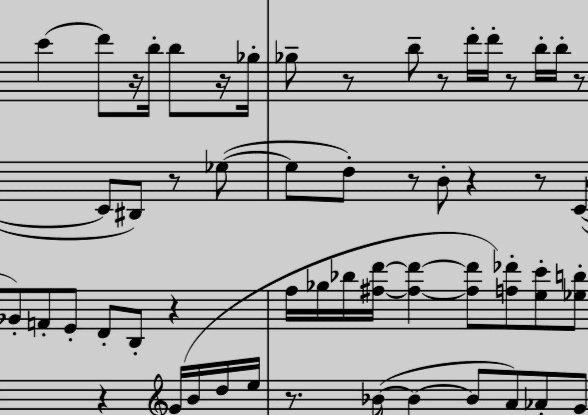
Bjørn Morten Christophersen
Bjørn Morten Christophersen
Photo: Morten Lindberg
Composer
& arranger
Nominated to: Spellemannsprisen 2022
Work of the Year 2024
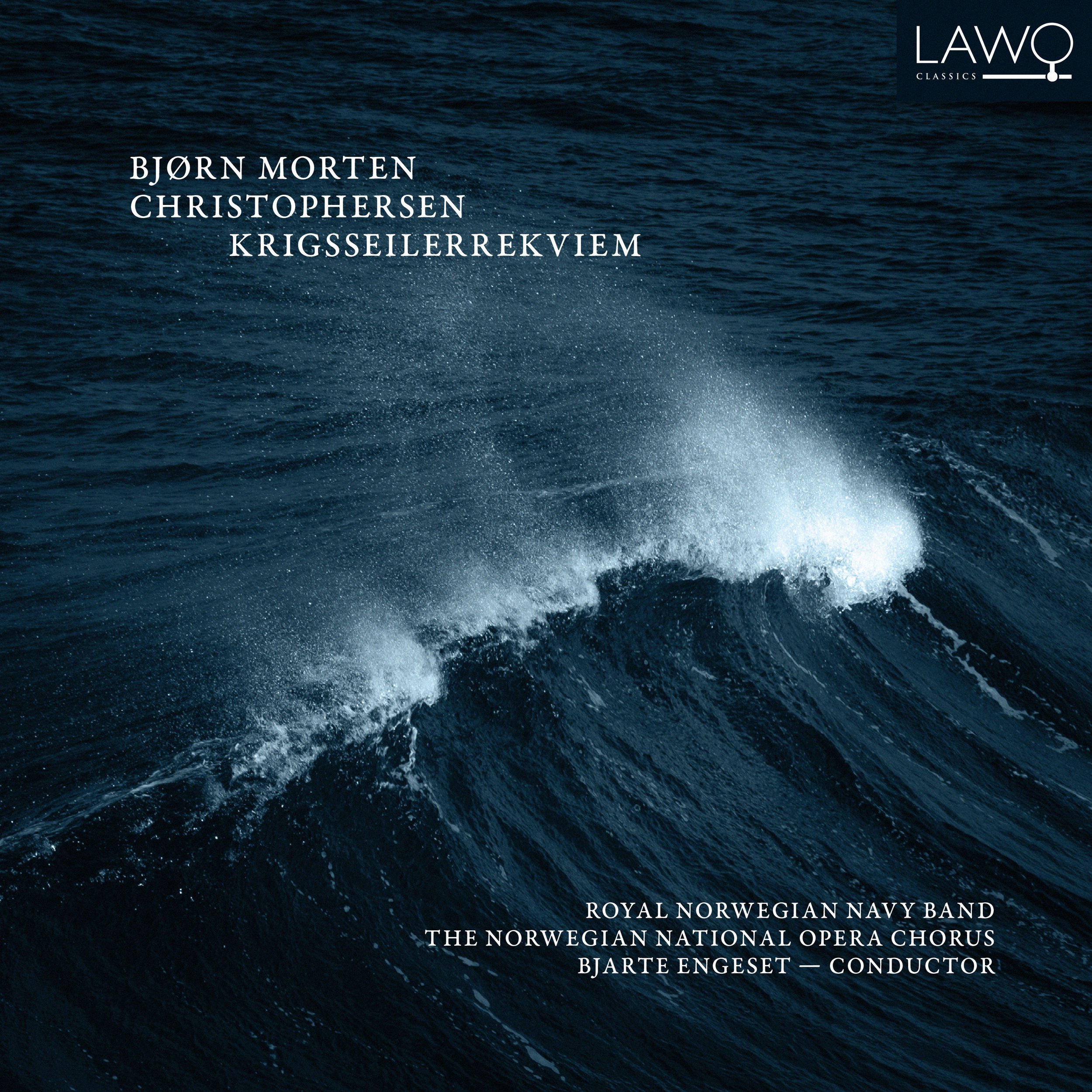
Krigsseilerrekviem /
War Sailors’ Requiem
Premiered by Tora Augestad (mezzo), Thorbjørn Guldbrandsøy (tenor), Magnus Ingemund Kjelstad (baritone), Magne Fremmelid (bass), The Norwegian Opera Chorus (Martin Wettges, choralmaster), The Royal Norwegian Navy Band, Bjarte Engeset (conductor) at Oslo Concert Hall, May 31th 2022.
Nominated to WORK OF THE YEAR 2024 BY Norwegian Composers’ Society
-
Royal Norwegian Navy Band has been a significant supporter of the war sailors’ cause for many years. “War Sailor's Requiem” was commissioned for The Royal Norwegian Navy Band 's 200th anniversary in 2020. The anniversary coincides with the 75th anniversary of the truce in 1945.
I have composed the Libretto based on many different sources. Most of the text is the war sailor’s own words taken from letters, diaries, memoirs, or interviews. Naturally, I have had to shorten and adjust the texts to adapt for song.
I have also incorporated some poems and songs that have been significant in war sailor history. This includes an excerpt from Herman Wildenvey's poem written for the opening of the Memorial Hall in Stavern for the fallen sailors of World War I. Furthermore, I have included the hymn "Who knows how near my end is to me?" recommended for burials at sea by the Altar Book from 1945. Then I have included an adaptation of Nordahl Grieg's poem "It was home we Norwegian sailors were destined to," and finally the shanty "Rolling Home," which has German origins, probably from the 1870s.
Next, I have put it all together in the context of the traditional Catholic requiem. Music history has a rich requiem tradition. During the work, I realized that there is also a significant war requiem tradition that extends far beyond Benjamin Britten's iconic work. Excerpts from the requiem text are sung in both Latin and Norwegian. I hope that this will tie the work closely to the requiem tradition while also highlighting the striking similarities with the sailors' accounts. At times, they almost seamlessly blend into each other.
The development mostly follows that of the requiem, meaning that I let the sailors' stories reflect and actualize the requiem. This is not one continuous story from 1939 onwards, nor is it a single sailor's story.
The premiere was due to November 8th 2020 at the Norwegian Opera’s main stage. It was, however cancelled during the general rehearsal due to a covid outbreak. Finaly, the work was premiered in Oslo Concert Hall May 31th 2022 with great success.
-
I. INTROITUS: REST IN PEACE
Requiem aeternam dona eis, Domine et lux perpetua luceat eis.
Light,
the whole convoy lay bathed in light.
Heavens and sea were transformed to fire.
They fight their final battle
and enter the final rest.
Shall also we die like they die?
Rest in peace each soldier of peace
in your sunken grave.
Silent you sank, the memory climbs
like sun from the sea.
As day ascends, so too
all the sea did take.
Requiem aeternam dona eis, Domine et lux perpetua luceat eis.II. KYRIE: HAND OF DEATH
It’s coming, the torpedo.
Kyrie eleison.
I feel the hold on my throat,
weariness in my knees.Lord, show mercy unto us.
The boat throws violently.
The sea is vast.
In the lifeboat,
we row so the sweat gushes,
but the hands perish from the frost.
The snow lashes the face.
Christe eleison.
The face in the lifeboat.
Kyrie eleison.Hand of Death,
mountain of waves
coming toward us,
reaching after us
the foamy crest gushing in front.The face in the lifeboat
Tears are my bread day and night,
while they incessantly ask meg:
Where is your God?
III. GRADUALE: SHANTYAs day ascends, so too
all the sea did take.
Et lux perpetua luceat eis.
Light,
the whole convoy lay bathed in light.
Heavens and sea were transformed to fire.
Onboard on the burning ship
they fight their final battle.
Shall also we die like they die?
IV. DIES IRAE: WE CARRY ONDear Selma,
what do you feel?
Perhaps the same as me?
You feel it in your heart,
I feel it in my stomach,
as I have no heart at all.I'm very dissapointed about myself,
never made up to be a hero.
Not a coward, I hope.
We carry on sailing.Then, suddenly there was a heavy crash.
We carry on sailing.
Yes, suddenly there was a heavy crash.
We carry on sailing.
Another follows, yet another blast.
We carry on sailing.But everything is quiet,
there is nothing to see.
We carry on sailing.
1. Day of wrath and doom impending,
Heaven and Earth in ashes ending,
David’s word with Sibyl’s blending.2. Oh, what fear man’s bosom rendeth,
when from heaven the judge descendeth,
On whose sentence all dependeth.It is a strain to go for days and nights,
We carry on sailing.
expecting to be blown up by a terrible blast. We carry on sailing.Who knows if or when or where?
We carry on.
Will she float or will we go straight down?The sea stands in flames around the boat,
the heat is gruesome.
Dies irae, dies illa,
solvet saeclum in favilla:
teste David cum Sibylla.
We carry on.We rowed
with a wave of burning fuel after us.
The sea of flames engulfed the others.
The heat, the warmth!
Some remained on deck
and they knew.
We carry on sailing.
I confess I'm afraid to die.
We carry on.
I admire the others,
admire them.
So there it is again,
a door slammed, something fell on deck. Will you be killed or wounded?
Will you freeze to death?
Get into a lifeboat or cling to a raft?
Will it last long?
We carry on.
V. TUBA MIRUM I: ...AND CARRY ON...Dies irae, dies illa,
solvet saeclum in favilla:teste David cum Sibylla.
Tuba mirum spargens sonum
per sepulchra regionum,
coget omnes ante thronum.We carry on.
VI. KJÆRE LUCY
Dearest Lucy!
Or was it Margaret?
No, Nadya it was.
She with the glittering black hair
and those small pert breasts
under her black dress.
Yes, it was her.
Yes, she knows what happened.
Something went wrong, Nadya!I lay in the sea again.
Wanted to scream,
but all that came out was a sob.
There you were,
crouching and stroked my back.
I tried to laugh,
but I couldn’t.
You said you were my mother,
madre mia,
and we laughed about your pert breasts.
I think I was very drunk, Nadya!
In the morning you took me with you to church,
to church to light a candle,
for me!
So that the holy virgin should bring me safely
over the sea.
Dearest Nadya…
Or was it Miriam?Dearest Lucy,
I have no heart at all!
VI. TUBA MIRUM II: WHO KNOWS HOW NEAR MY END MAY BE?
Forgive me,
Dearest Amy, forgive me.
I do not know
how we can go on.
I am surely finished
and so are the others.
Forgive me,
dearest Amy, forgive me.
I have done no wrong.
It came, Amy.
The blast,
and I thought that it was us
that they had hit,
but it was “Biarritz”.
Oh God, oh God,
it sank in half a minute.
Forgive us,
we have done no wrong.
Tuba mirum spargens sonum
per sepulchra regionum,
coget omnes ante thronum.
Wondrous sound the trumpet flingeth
Through earth’s sepulchres it ringeth
All before the throne it bringeth.
My heart beats violently.
I thought I was ready to die,
but to be burned alive would seem too cruel.
And then the depth charge blew.
The tremor should wake the dead.
Death is struck, and nature quaking:
All creation is awaking,
To its Judge an answer making.Oh, look, a giant bomber lurks on the starboard!
Then it disappears.
Now it’s coming again
flying very low.
A life means nothing.
But I have an unending thirst to live.
Dearest Amy,
forgive me.
I am surely finished.
Oh, how they cried.
We have done no wrong.
I can still hear the cries.
How can we go on?
Who knows how near my end may be?
Time speeds away and death comes on;
How swiftly, ah! How suddenly,
may death be here and life be gone!
My God, for Jesus’ sake I pray
Thy Peace may bless my dying day.
A life means nothing.
But I have an unending thirst to live.
So absurd, so bitter
to leave
those at home forever, and friends out there,
to be with them no more.
I worked so hard to live.
Arms and legs in constant motion
for eleven days,
while luminous luxury steamers
sailed in to every torn fantasy.
The world that smiled when morn was come
May change for me ere close of eve;
So long as earth is still my home
In peril of my death I live.
My God, for Jesus’ sake I pray
Thy peace may bless my dying day.
VIII OFFERTORIUM: WHEN WE BRING FREEDOM HOME
Home, we were to come home
with freedom, home.
It was home we were to come
every time we headed out.
We came in from the sea
with presents for our loved ones
Now we shall bring
freedom home.
We offer sacrifices.
Receive them for those souls
whom today we remember.
Hostias et preces, tibi, Domine,
laudis offerimus.
It was home we were to come,
home with freedom.Sacrifices, we offer sacrifices.
Sacrifices and prayers?
Strange.
None of my comrades
gave their life for the fatherland!
It was the bloody war
that took it.
They carried a burning desire
to save the only life they had.
Hostias et preces, tibi, Domine,
laudis offerimus.Not even the slightest thing have they understood
of the fear of dying when you are only eighteen years.
Rex gloriae, rex potus.King Alcohol,
glorious king.Save all the souls
from the deep
and from the lion’s mouth.Just because it’s war,
makes it no easier to die,
and you die only once.IX. LIBERA ME: HAVE YOU SLEPT WELL?
Lux aeterna luceat eis, Domine.
Light,
bright spheres of light hang in the air
and light up the sea
with beautiful light red colors.
The night was glorious.Requiem aeternam dona eis, Domine
et lux perpetua luceat eis.Loud shooting,
infernal noise.
Even so, the night
was glorious.Let the eternal light shine for them.
Light,
a blueish light fills the room.
No one is to be found.
It is quiet.Libera me.
Have you slept well, my boy?
In sleep come the tormenting dreams.
A blueish light, intense light fills the room.
No one is to be found.
Sunken in the floor, cases of glass,
hundreds of them.
Have you slept well, my boy?
Cases that are filled with liquid,
in them lie human bodies.
Fragmented bodies.
Rows of teeth grimace at me
from empty skulls.
Above me the dark.
Light,
the dazzling light comes from the cases.
Ceiling and the walls are dark, as if they do not exist.
Only the dazzling light from the glass cases and bodies.
I must wander on the edge and look down.
Have you slept well?
Requiem aeternam,
et lux perpetua luceat eis.Rolling home, rolling home,
rolling home across the sea.
Rolling home to dear old Norway.
Rolling home, dear land to thee.
Do you sleep well, my boy?
Who can understand?
No one wants to understand.
I must manage alone.
Rolling home, rolling home,
rolling home across the sea.
Rolling home to dear old Norway.
Rolling home, rolling home!Translated by Peter Edwards
-
-
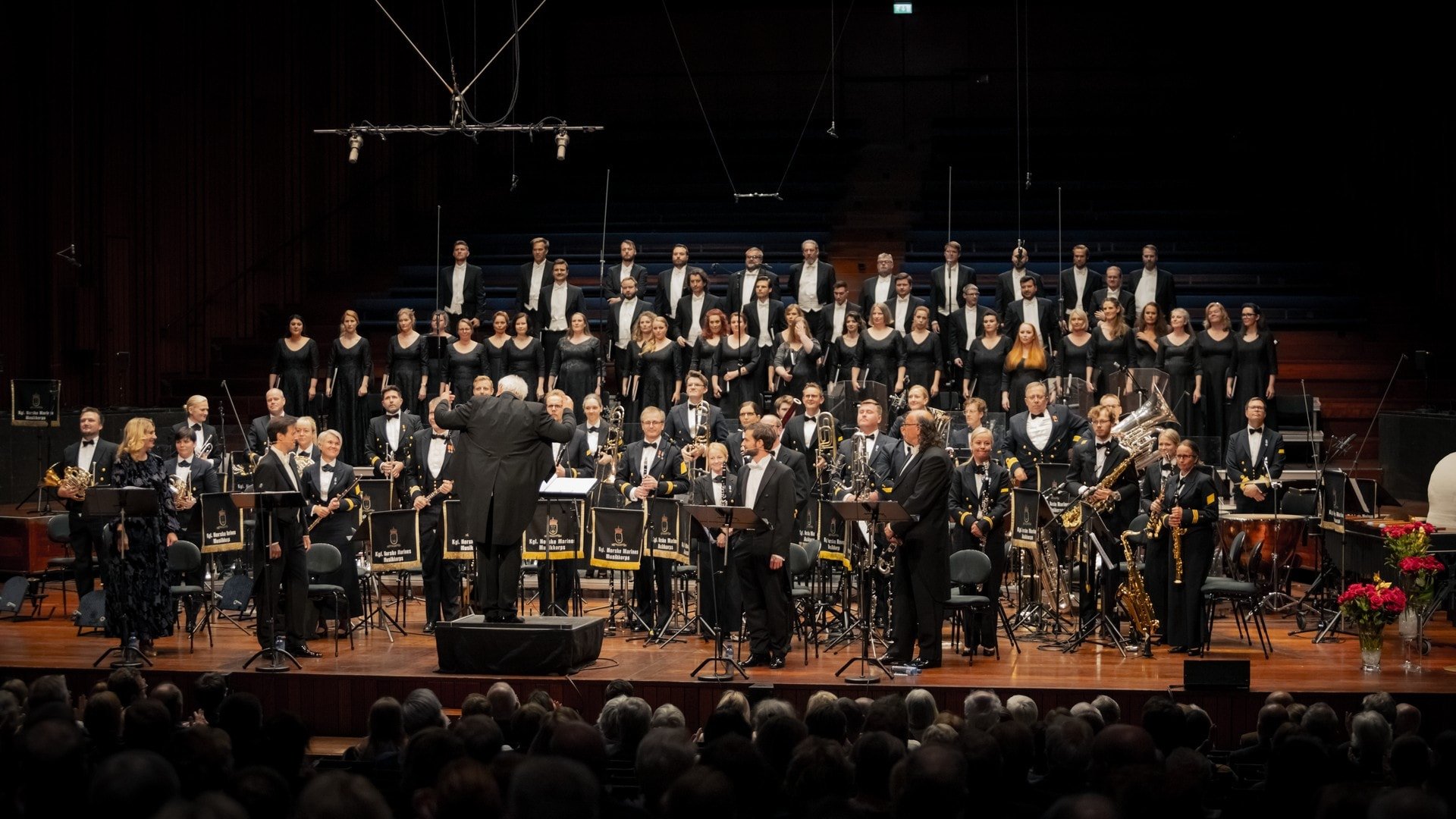
To listen, to sense essence
Photo: Thomas Wolden
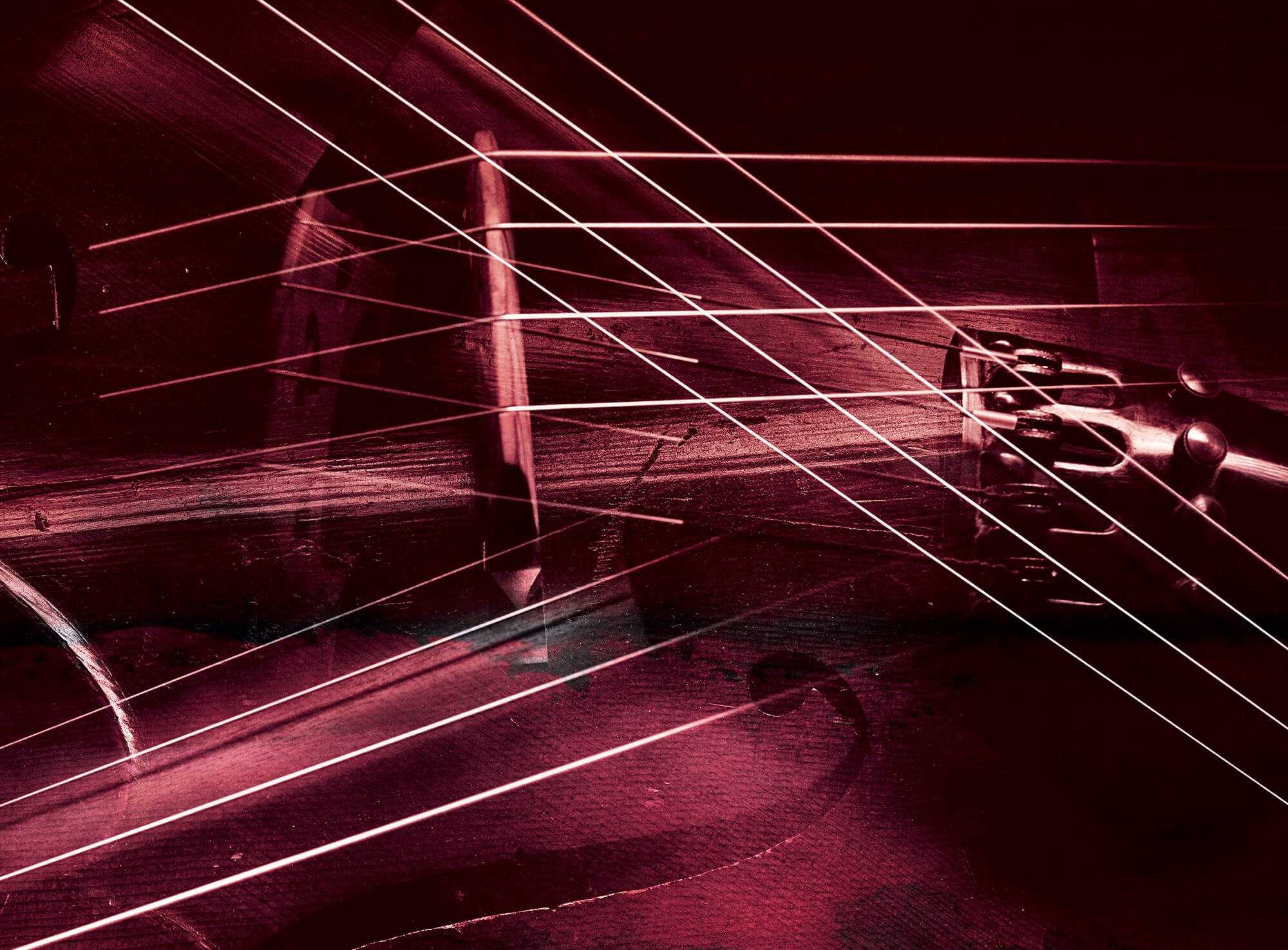
Concerto for violin and Strings
Recorded by Ai-Ling Chiu,
Telemark Chamber Orchestra,
Per Kristian Skalstad (conductor)
-
Concerto for Violin and Strings was composed for the Taiwanese violinist Ai-Ling-Chiu. The concerto was premiered at Ålesund Chamber Music Festival in 2017 by an orchestra consisting of Taiwanese and Norwegian musicians.
Chiu came up with the idea of using the song Longing for your return as an element to give the work a personal touch. This melody was used as a song for freedom during World War II. Chiu has studied and performed in many parts of the world, and Christophersen is particularly interested in musical narrativity, i.e. a narrative thread that does not necessarily have any extra-musical references. Therefore, ideas such as ‘identity’ and ‘musical journey’ presented themselves at an early stage of the composition process.
Throughout the work the Taiwanese melody is hinted at, woven together with my own material. The final movement develops towards a form of deliverance or resolving, as would be expected of a virtuoso solo concerto. But instead, the musical momentum stagnates, dissolving into the Taiwanese melody that is the goal of the musical narrative. This made a particular impression on the audience at the two performances in Taiwan in 2018.
The concerto consists of three movements, Unfolding, Air, and Return. The second and third movements are played attacca, separated by a solo cadenza for the violin. While the Taiwanese melody serves as a point of reference for the structure of the work, for those who do not know the melody, smaller motivic building blocks are more instantly recognizable: minor sixths, both arpeggiated and in chordal form (often occurring as an interval of a major chord in first inversion), and an upward-moving tritone gesture consisting of a major third followed by a major second. In melodic form, these brief motifs serve as points of reference throughout the musical narrative.
The languid, dreamy second movement Air continues to develop these motifs along with fragments of the Taiwanese melody, until the pensive atmosphere is punctured by fortissimo crushed tone clusters, effectively ending the dream-like state. There follows a more restless, urgent section that leads seamlessly into the candenza. Echoing the theme of identity, the cadenza makes a brief, frenzied visit to traditional Norwegian fiddle folk music; a fortissimo pizzicato interruption in the lower strings marks the transition to the energetic third movement Return. The concluding chorale gathers harmonic
momentum towards its home key of E minor, while the cello plays a condensed counterpoint in which we hear the aforementioned motivic material one last time. The melancholic Taiwanese melody sits on top of harmonies that hint at a Norwegian national romantic idiom, thus uniting themes of identity and musical journey; the unsettled harmonies are laid to rest and there is a sense of homecoming in the final, fully resolved E major chord.
Album liner notes by Andrew Smith
-
The album begins with "Concerto for violin and strings" by Bjørn Morten Christophersen (b. 1976) - a composer who constantly arouses excitement among both audiences and critics. At the latest in 2022, he an album together with the same orchestra in the oratorio "The Lapse of Time" - a work that has been highly appreciated both on record and in the concert hall. On this disc, there is, however, a violin concerto with the very talented Ai-Ling Chiu as soloist. Parts of the work is based on the Taiwanese song "Longing for your return". And it is exciting to hear how Christophersen weaves this work. Because it is indeed weaving it is. Fragments of the song can be found again in the work and towards the end the composer makes an ingenious move. Instead of a wonderfully uplifting ending, the delicate melody comes in a subdued and beautiful package. All brilliantly performed by a particularly fine soloist.
Trond Erikson in Den klassiske CD-bloggen.
Read moreGuy Rickards in KlassiskMusikk.com
Read reviewOla Nordal’s reveiw in Ballade.no
Read reviewEystein Sandvik’s review in NRK Spillerom
Lissten to review -
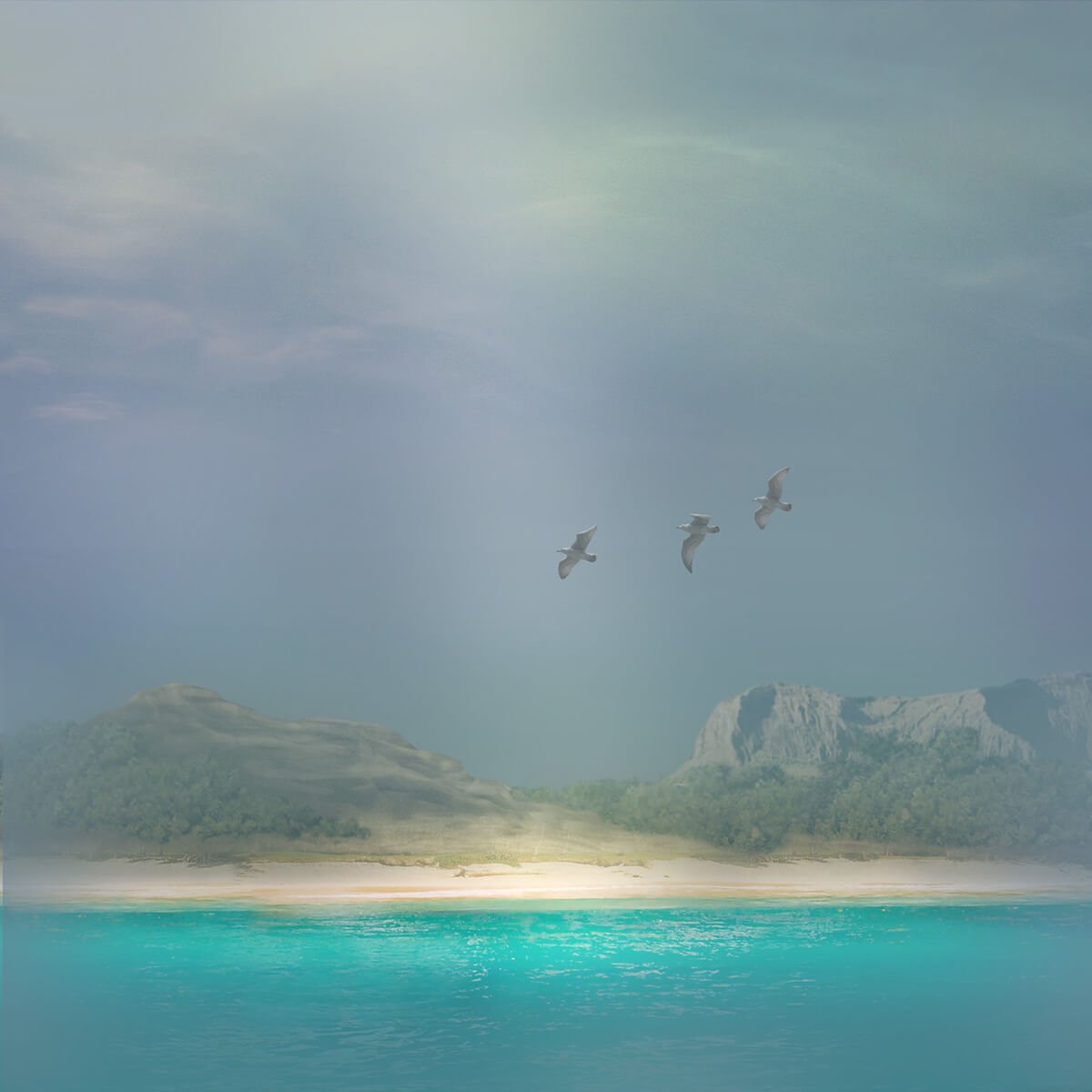
The Lapse of Time
- an oratorio on Charles Darwin: The Origin of Species
Recorded by Ditte M. Bræin, Frank Havrøy, Inger-Lise Ulsrud, Ensemble 96, Telemark Chamber Orchestra, Nina T. Karlsen / Per Kristian Skalstad | Simax Classics
Nominated to Spellemann 2022 (Norwegian Grammy)
-
The Lapse of Time is an all-evening oratorio based on strikingly poetic excerpts from Darwin's revolutionary book On the origin of species written by the Norwegian composer Bjørn Morten Christophersen. The work is a tribute to the evolution of life on earth and intended for musical sharing between natural science, religion and art.
Indeed, it is surprising to find a vein of poetry running through a dissertation of natural science. But that is in fact the case with Darwin's iconic book, which at the same time is one of the most ground-breaking scientific works ever written. The book is truly worth reading for any layman. That one cannot really say about Einstein's theory of relativity or all the articles pouring out of the various universities today. Christophersen has set music to excerpts from The Origin of Species after carefully adapting them into singable phrases. Nevertheless, nothing is added, we hear only Darwin's own words in this oratorio.
The Lapse of Time is a large-scale musical drama in which two soloists, choir and orchestra move through slow-building waves from the barely audible to magnificent climaxes. The work is full of life: we really feel the crawl and crabbing within the orchestra while the singers chant an astonishingly poetic text, taking its origin into consideration. Profound, playful, dramatic and humorous passages are woven together in a large organic musical course. The Lapse of Time also has a sacred flavor to it by involving both the church organ and mimics of plainchant. Through this work, Christophersen hopes to create a basis for shared wonder and excitement between natural science and religion.
Life on earth has developed through a time span far beyond our own to emerge as overwhelmingly rich and complex as we see it today. This idea was a completely new realization in Darwin's time, and it met strong opposition especially from the church. And it is still controversial in many circles today. After all, we can't easily grasp billions of years in our consciousness. So how can we experience that minor changes from one generation to the next can result in such a diversity? Perhaps through music? For music is the very form of art suitable for experiencing time in various ways. In this work, for instance, the orchestra and choir initiate a dialogue with their own past, that is, with parts of the work we have already heard. Music from our memory emerges into our presence and affects the future of our "now", so to speak.
Nominated to Spellemannsprisen (Norwegian Grammy) 2022 in category Composers' Prize
-
based on
Charles Darwin: On the Origin of Species (1859)adapted by
Bjørn Morten ChristophersenPART I: WATCH THE SEA AT WORK
Watch the sea at work
grinding down old rocks.
making fresh sedimentExtremely slow
The lapse of time
the monuments around usLong lines of inland cliffs formed
great valleys excavated
by the slow action
of the coastal wavesThe lapse of time
the monuments around usFrom the first dawn of life
all organic beings
resemble each other
in descending degrees
classed in groups under groupsFor species have changed
and are still slowly changing
successive slight favourable variations
a slowly changing drama
One species given birth to otherThey all fall into one
grand natural systemThe lapse of time
the monuments around usPART II: STRUGGLE FOR LIFE
Struggle for life
Struggle for existenceInnumerable beings
on the face of this earth
struggle with each other
in the race for lifeSevere competition
through the course
of thousands of generationsThe lapse of time
the monuments around usEvery single organic being is
striving to increase in numbers
yet, all cannot do so
for the world would not hold themLet the strongest live and the weakest die
INTERLUDE 1: MISTLETOE
Mistletoe struggles
with other fruit-bearing plants
to tempt birdsAs the mistletoe is disseminated by birds
its existence depends on birds
it struggles with other fruit-bearing plants
to tempt birdsSome speciesmay be nowincreasingin numbers
yet all cannot do so
for the world would not hold themEven slow-breeding man
there will not be room for his progenyPART III: CHANGE
Evolve! Change!
to beauty and infinite complexity
Remarkable fact!
beauty and infinite complexityThe lapse of time
the monuments around usNatural selection
is daily and hourly scrutinising
silently and insensibly working
throughout the worldWe see nothing of these
slow changes in progress
until the hand of time has marked
the long lapse of agesA grain in the balance
determines
which shall live
and which shall dieFor those which do not change
will become extinctPART IV: EXTINCTION
Like the branching of a great tree
from a single stem
extinction
widening the intervals
extinction
widening the gaps
between speciesAll living species
connected
with parent-species now extinct
connected
with more ancient speciesInconceivably great number
of intermediate and transitional links
between living and extinct
Such have lived upon this earthThis wonderful relationship
between the dead and the livingINTERLUDE 2: BONES Bones!
-in the wing of the bat
-in the flipper of the seal
-fin of a porpoise
-in the fore leg of the horse
-in the arm of the monkey
-in the hand of a man
inherited from a common progenitorBlind animals in caves:
the eye is gone!
Convert a swim bladder into a lung
Remarkable fact!Natural selection is daily and hourly working
throughout the worldPART V: NATURA NON FACIT SALTUM
(NATURE MAKES NO LEAP)
During the vast periods of time
before Silurian age and the present day
the world swarmed with living creaturesWhat an infinite number of generations
which the mind cannot grasp
must have succeeded each other
in the long roll of years
Slight successive favourable variations
only by very short and slow steps
a slowly changing drama”Natura non facit saltum”
The lapse of time
the monuments around usThe mind cannot grasp
a hundred million years
it cannot perceive the effects
of slight variations
through an infinite number of generationsFor the lapse of time
has been so great
as to be utterly inappreciable
by the human intellectExtremely slow
The lapse of time
the monuments around usEPILOGUE
Look! Watch! Admire!
the truly wonderful power
of natural selection
around us!Look! Watch! Admire!
the sea at work
the flipper of a seal
the fin of a porpoise
the mistletoe, the birds
the remarkable fact
Around us!All speciescannot increase
for the world would not hold them
even man, there will
not be room for his progenyLook! Watch!
Admire us!
the human mind!
the intellect!Look! Watch! Admire!
the wonderful struggle for life
the hand of time
the beauty and infinite complexity
the monuments of which we see
around usAround us!
-
Review in Gramophone. Brian Morton , 28.6.2023
So original and convincing that any concern about rock-opera cliché quickly disappears
An oratorio based on Darwin's On The Origin Of Species might seem to risk predictability more than than obscurity, but Christophersen's handling of large masses of time, the slow geological changes of ‘Part 1: Watch The Sea At Work’, is so original and convincing that any concern about rock-opera cliché quickly disappears. What makes the music urgent and sets it apart is that the whole scenario has shifted towards the spectre of extinction as the endgame of natural selection, something Darwin had not quite anticipated, but rendered all the more poignant and dramatic by the work's preparation and premiere being played out against the background of global pandemic. The choir brings a thrilling commitment to the singing and Sean Lewis's sound design (which alone justifies the comparison with rock-music projects of similar ambition) is immaculate.
-

